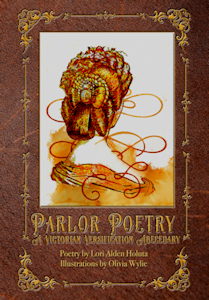At the Island’s Edge by C. I. Jerez
Publisher: Lake Union Publishing
Genre: Contemporary, Fiction
Rating: 4 stars
Reviewed by GingerAn Iraq War veteran returns to Puerto Rico to reconnect with―and confront―the past in a heart-wrenching novel about duty, motherhood, and the healing power of home.
As a combat medic, Lina LaSalle went to Iraq to save the lives of fellow soldiers. But when her convoy is attacked, she must set aside her identity as a healer and take a life herself.
Although she is honored as a hero when she returns to the US, Lina cannot find her footing. She is stricken with PTSD and unsure of how to support her young son, Teó, a little boy with Tourette’s. As her attempts to self-medicate become harder to hide, Lina realizes she must do the toughest thing yet: ask for help.
She retreats to her parents’ house in Puerto Rico, where Teó thrives under her family’s care. Lina finds kinship, too―with a cousin whose dreams were also shattered by the war and with a handsome and caring veteran who sought refuge on the island and runs a neighborhood bar.
But amid the magic of the island are secrets and years of misunderstandings that could erode the very stability she’s fighting for. Hope lies on the horizon, but can she keep her gaze steady?
Combat medic Sergeant Catalina (Lina) LaSalle-Rivera returns from Iraq a hero but struggles with the moral implications of having taken a life during an attack. Lina moves back to Puerto Rico with her son, Matteo (Teó), who has Tourette’s syndrome, to be with her family. However, hidden family secrets and past misunderstandings threaten to further drive her into a downward spiral, leaving her to question whether she can truly find healing and hope.
The early parts of the novel are engaging and emotional, particularly as Lina navigates the growing tension between her personal turmoil and her family. Lina’s journey is compelling and heart-wrenching, but it seems her life has always been overshadowed by sadness. She has faced pressure from her family, feeling inadequate as a female. She later grappled with feelings of disappointment after becoming pregnant and joining the Army. The family dynamic, which aimed to ensure that Lina had a better life, is understandable; however, after her return, it seems the pressure then turned to her being a good parent. Lina holds in a lot of her emotions, yet her family remains unaware of her struggles. Though I empathize with Lina, I believe she needed counseling long before the incident in Iraq.
**Warning**: For readers struggling with depression or low self-esteem, Lina’s story may be triggering.
I enjoyed the author’s story; the pacing was consistent, and there were a few twists that I did not see coming. I appreciated the cultural history and visual details of Puerto Rico, and I especially liked the inclusion of Spanish phrases throughout the book. Since I can read Spanish better than I can speak it, this was a real treat.
Lina’s story is one that many military and medical professionals can relate to. They take an oath to heal and treat those in medical need, but it can be traumatic for them if they are involved in causing someone to lose their life. Processing that experience can be heavy and difficult.
Lina was very shut off from others, trapped in her own thoughts, which were overwhelming her. Her despair led her to seek escape in alcohol. I was glad to see her courage to recognize that her drinking was problematic and to accept therapy—not only for her own well-being but also for Teo’s sake.
Although I was captivated by the story, it felt like some phrases were repeated several times throughout the book. The supporting characters, especially Tia Lisandra and Papi, often seemed one-dimensional. Tia Lisandra was very vocal and took charge of the family, but I did not fully understand her motivations. I was hoping for more details and closure between Lina and her Tia, as well as between Tia Lisandra and her daughter Dolores. It appeared that Tia Lisandra was alone and bitter, driven by pride rather than love and compassion. Papi had chauvinistic opinions, but there were conversations with Lina that revealed a loving and softer side to him. I was grateful that Lina found support from her niece Dolores and a fellow veteran, Elijah Montgomery, who helped Lina through her healing process.
The shocking revelation regarding the misunderstanding with Leonardo, Teo’s dad, seemed to indicate that the author did not want to portray Leonardo as a villain, but rather this created a family secret. Nevertheless, I was pleased that things were resolved in the end. The resolution and Lina’s redemption brought her back to feeling like a healer, enabling her to serve her country again.
The author wrote from a sensitive perspective, and I appreciated that. At the Island’s Edge is a touching exploration of trauma, healing, and the enduring power of family. Jerez crafts a compelling narrative that resonates with raw emotion, inviting readers to connect with Lina’s struggles and celebrate her resilience. This is a story that will stay with you long after you turn the final page.




























